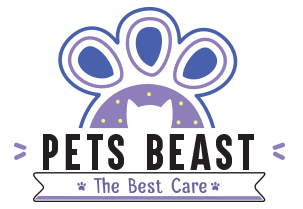As a pet owner, you may have wondered whether it’s safe to give your guinea pig some cat food. Perhaps you’ve run out of guinea pig food, or maybe you’re simply curious about the nutritional needs of your little furry friend. Regardless of the reason, it’s essential to know if feeding your guinea pig cat food is a good idea or not. This blog post will explore the nutritional requirements of guinea pigs, how cat food may impact their health, and provide some alternative solutions for a healthy and happy pet.
Understanding Guinea Pig Nutrition
Guinea pigs are herbivorous animals, meaning they primarily consume plant-based foods. Their diet should consist of a variety of hay, fresh vegetables, and fruits, along with a small portion of high-quality, commercial guinea pig pellets. Guinea pigs also require a constant supply of fresh water. Vitamin C is particularly crucial for guinea pigs, as they cannot produce it on their own. A deficiency in vitamin C can lead to scurvy, a severe and potentially life-threatening condition.
On the other hand, cats are obligate carnivores, which means they must consume animal-based proteins to meet their nutritional needs. Their diet mainly consists of meat or fish, and they require a range of nutrients such as taurine, arginine, and certain vitamins and minerals that are found in animal tissues.
The Dangers of Feeding Cat Food to Guinea Pigs
Given the significant differences in nutritional requirements between guinea pigs and cats, feeding cat food to your guinea pig is not recommended. Here are some reasons why cat food can be harmful to guinea pigs:
- Inappropriate Nutrient Composition: Cat food contains high levels of protein and fat, which are not suitable for guinea pigs. High levels of protein can strain a guinea pig’s kidneys, while excessive fat can lead to obesity and related health issues.
- Lack of Essential Nutrients: Cat food does not provide the necessary nutrients, such as vitamin C and adequate fiber, required by guinea pigs for proper growth and overall health.
- Presence of Harmful Ingredients: Some cat foods may contain ingredients that are toxic to guinea pigs, such as onion and garlic extracts. These can lead to gastrointestinal issues and other health problems.
- Choking Hazard: The size and shape of cat food pellets or kibble can pose a choking hazard for guinea pigs, who are more accustomed to smaller-sized pellets or fresh plant material.
Alternative Foods for Guinea Pigs
In case you’re running low on guinea pig food, or you’re looking to diversify your pet’s diet, here are some safe and nutritious options:
- Fresh Hay: Timothy hay, meadow hay, or orchard grass should make up the majority of your guinea pig’s diet. It provides essential fiber and keeps their teeth healthy.
- Vegetables: Leafy greens such as romaine lettuce, kale, and parsley can be offered daily. Other veggies like bell peppers, cucumbers, and zucchini can also be given in moderation.
- Fruits: Fruits can be given sparingly as treats. Some safe options include apple, pear, and berries. Remember to remove seeds and pits before feeding.
- Guinea Pig Pellets: Choose high-quality, timothy-based pellets fortified with vitamin C. Avoid mixes containing seeds or nuts, as these can pose choking hazards or lead to imbalanced diets.
Conclusion
In conclusion, guinea pigs should not be fed cat food due to the significant differences in their nutritional requirements. Feeding your guinea pig an improper diet can lead to serious health complications.
For more information about guinea pig care and nutrition, check out the following resources:
- Guinea Pig Care and Nutrition: A Comprehensive Guide: This article from the Humane Society offers an in-depth look at guinea pig care, covering topics like housing, nutrition, grooming, and health. It provides valuable information for both new and experienced guinea pig owners.
- The Importance of Vitamin C for Guinea Pigs: This article on Small Animal Channel explains the crucial role of vitamin C in a guinea pig’s diet, the risks of deficiency, and how to ensure your pet receives an adequate supply.



